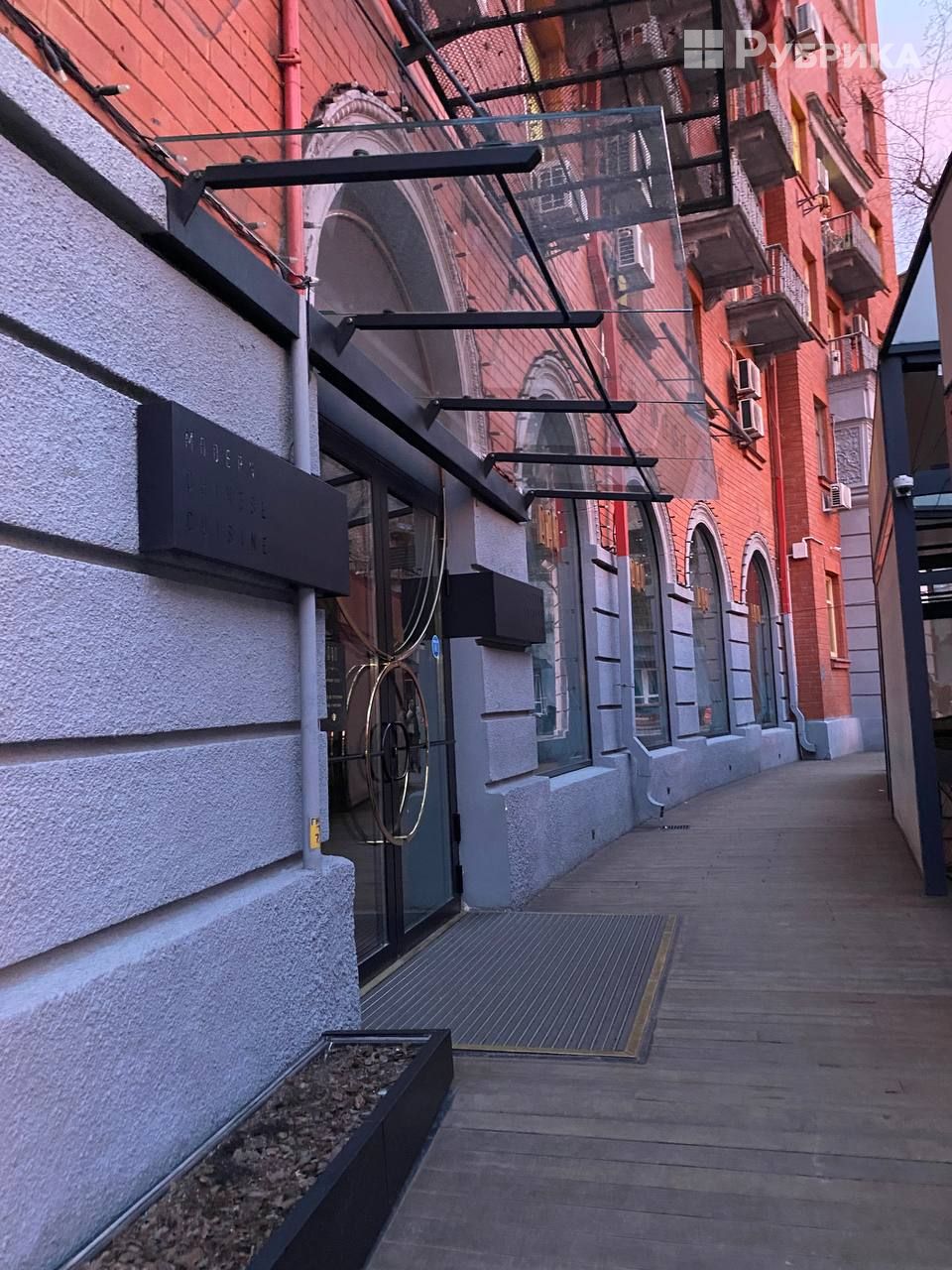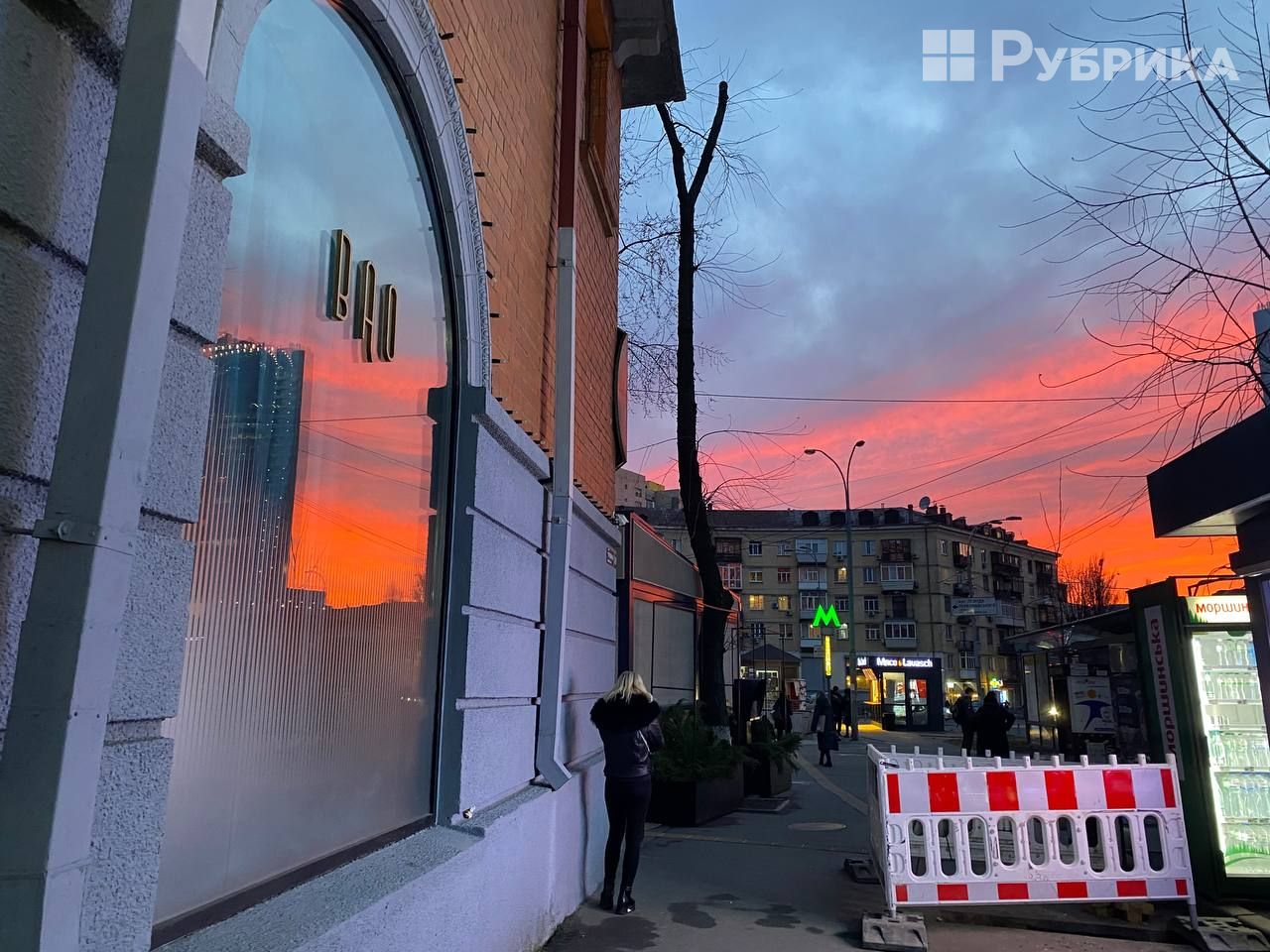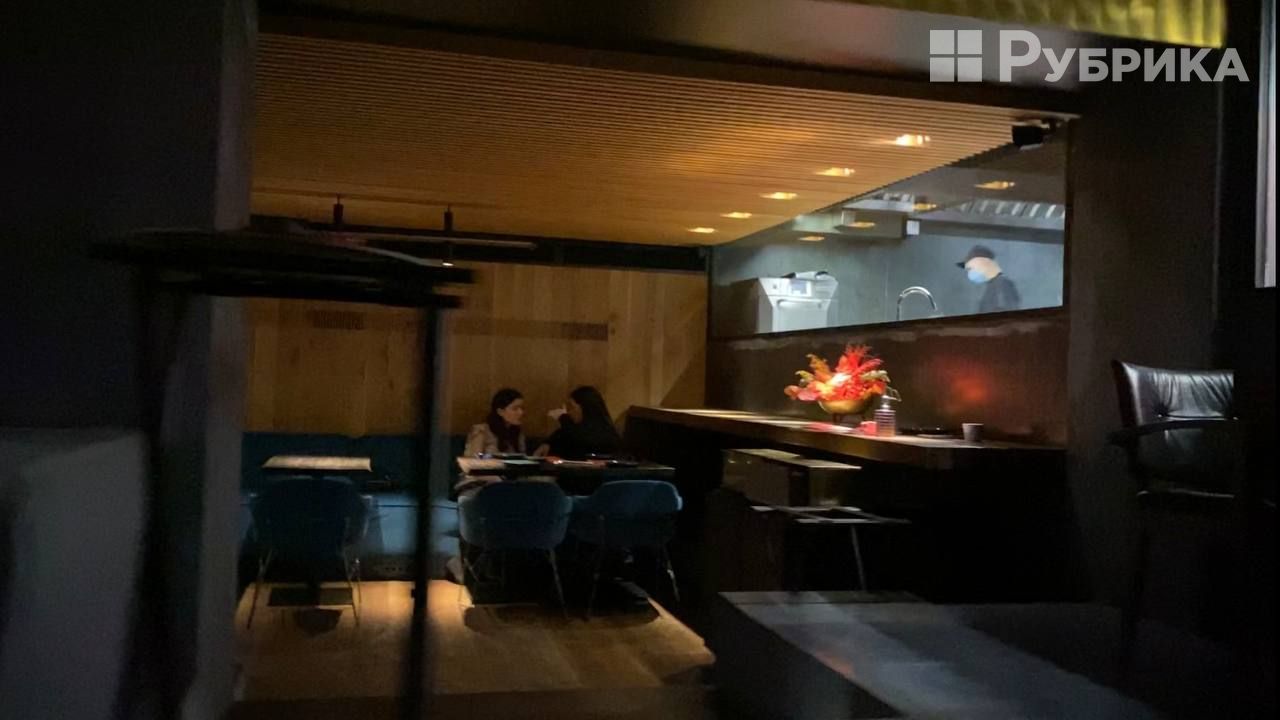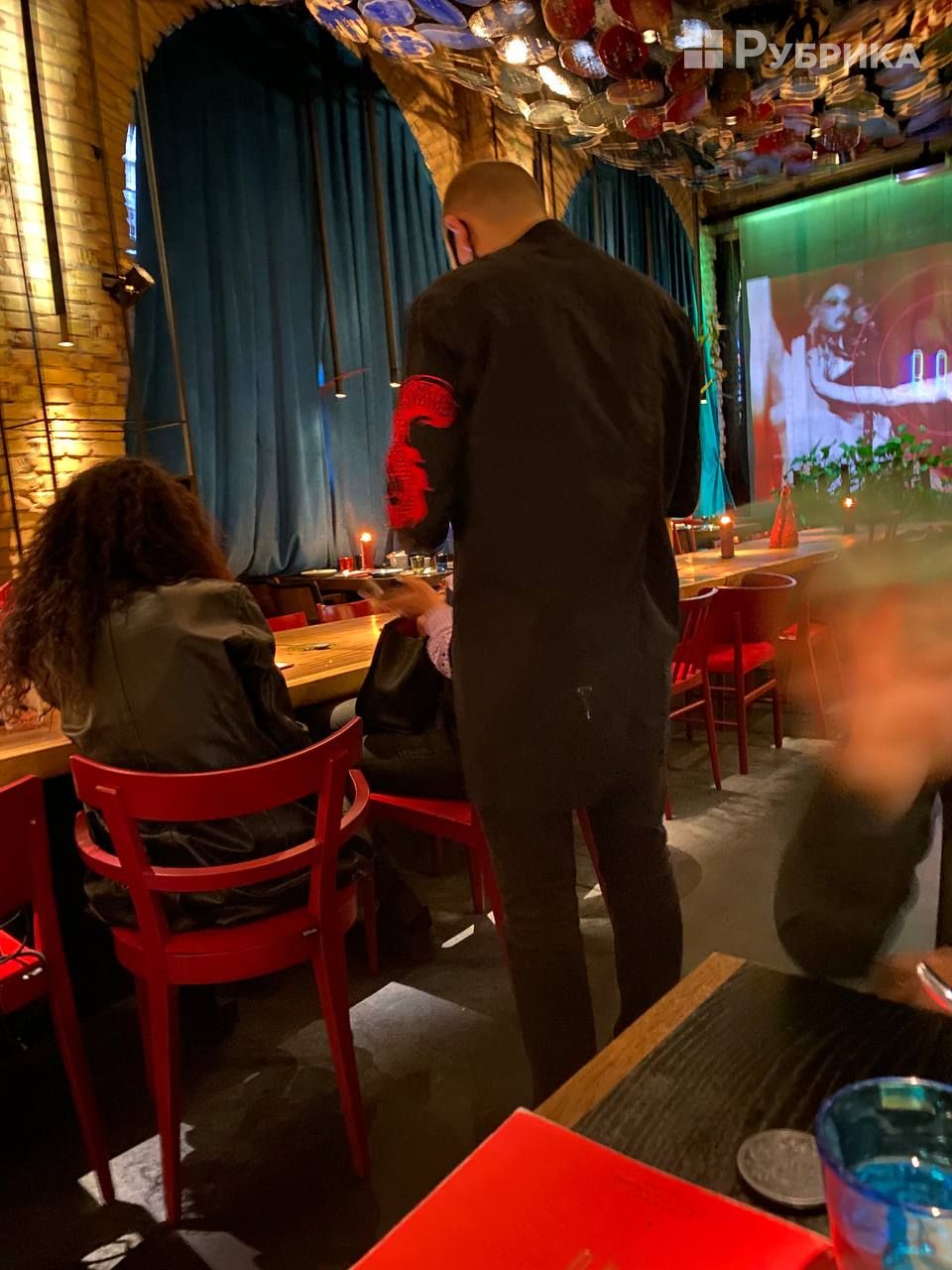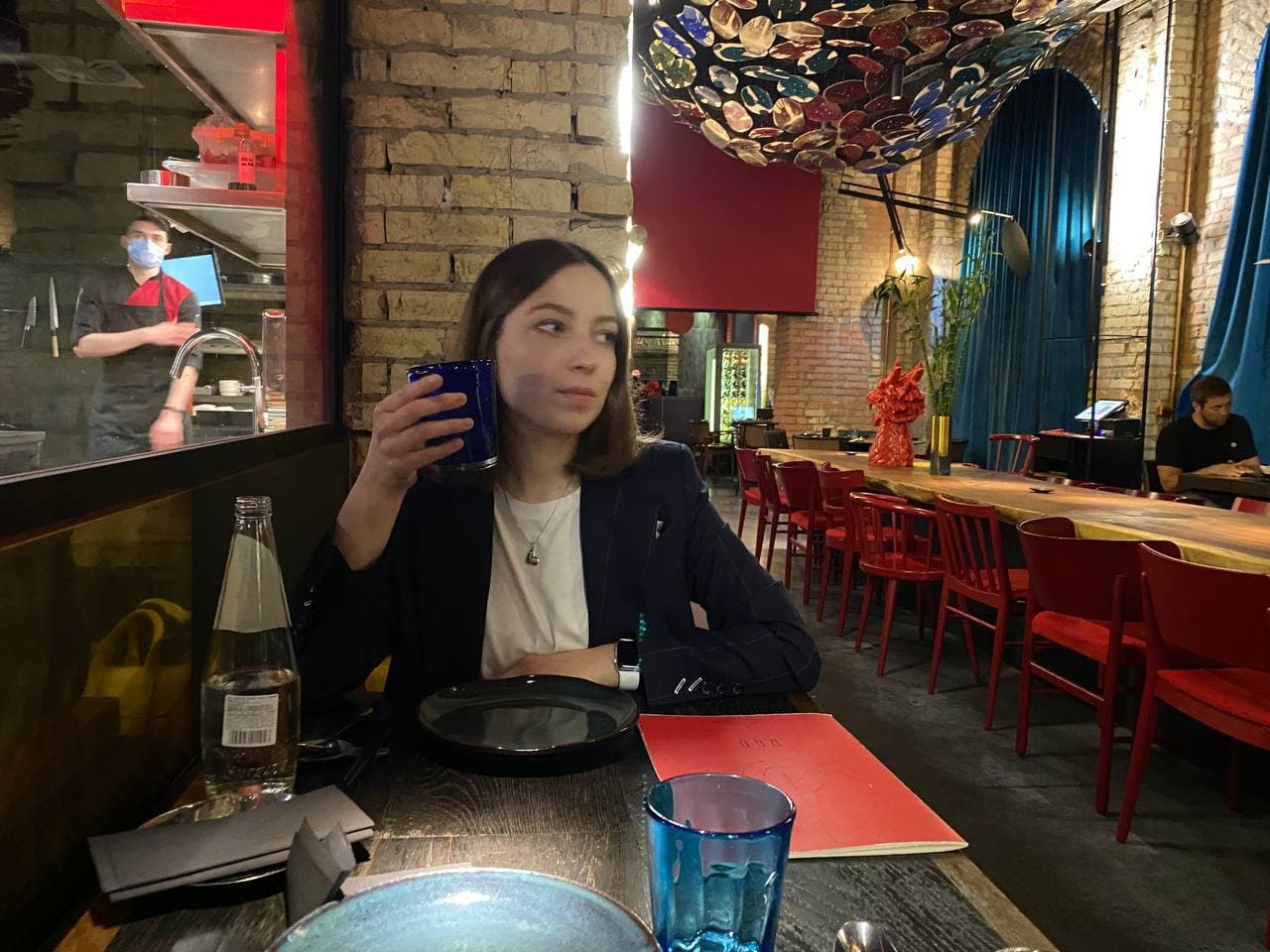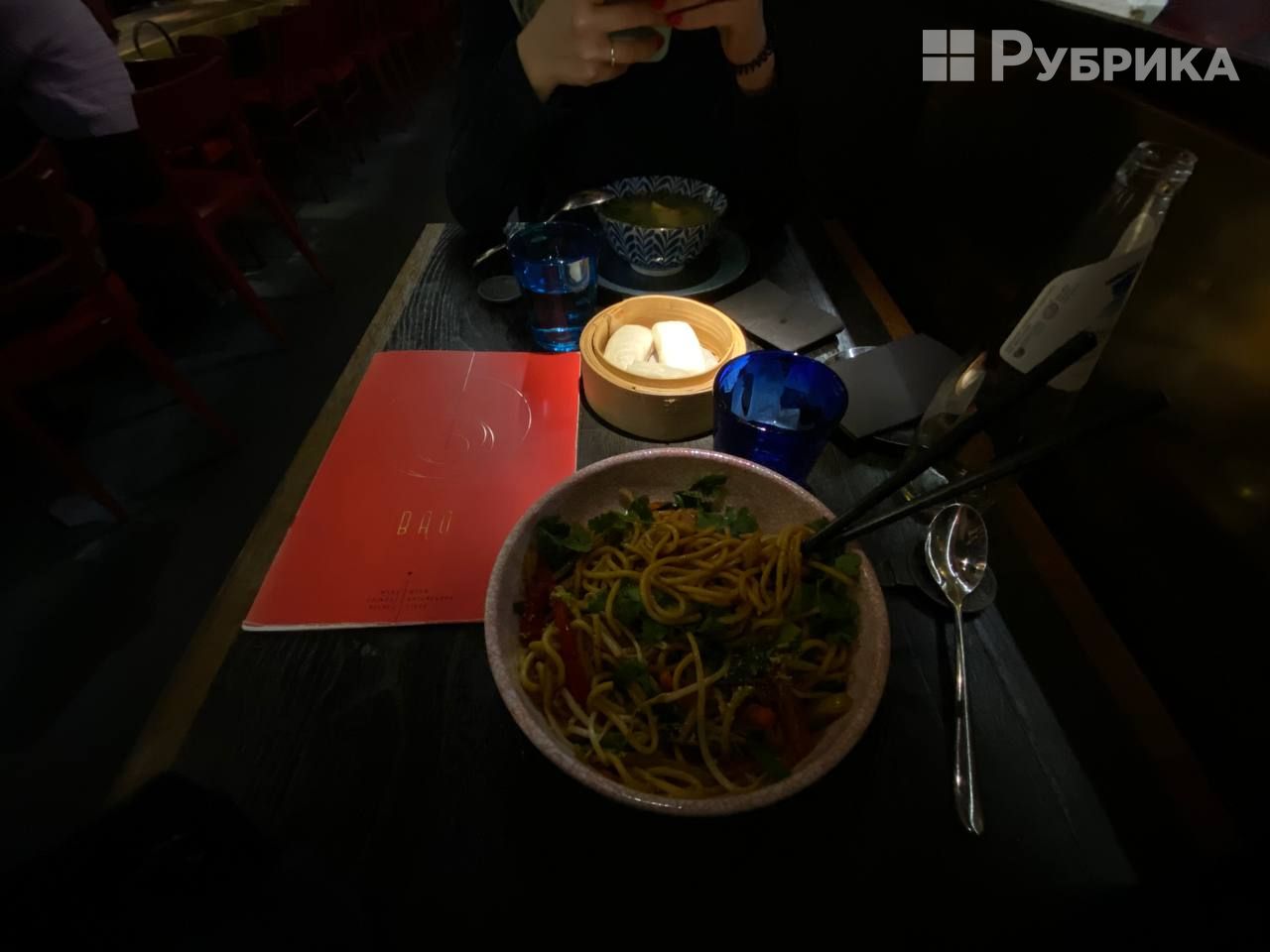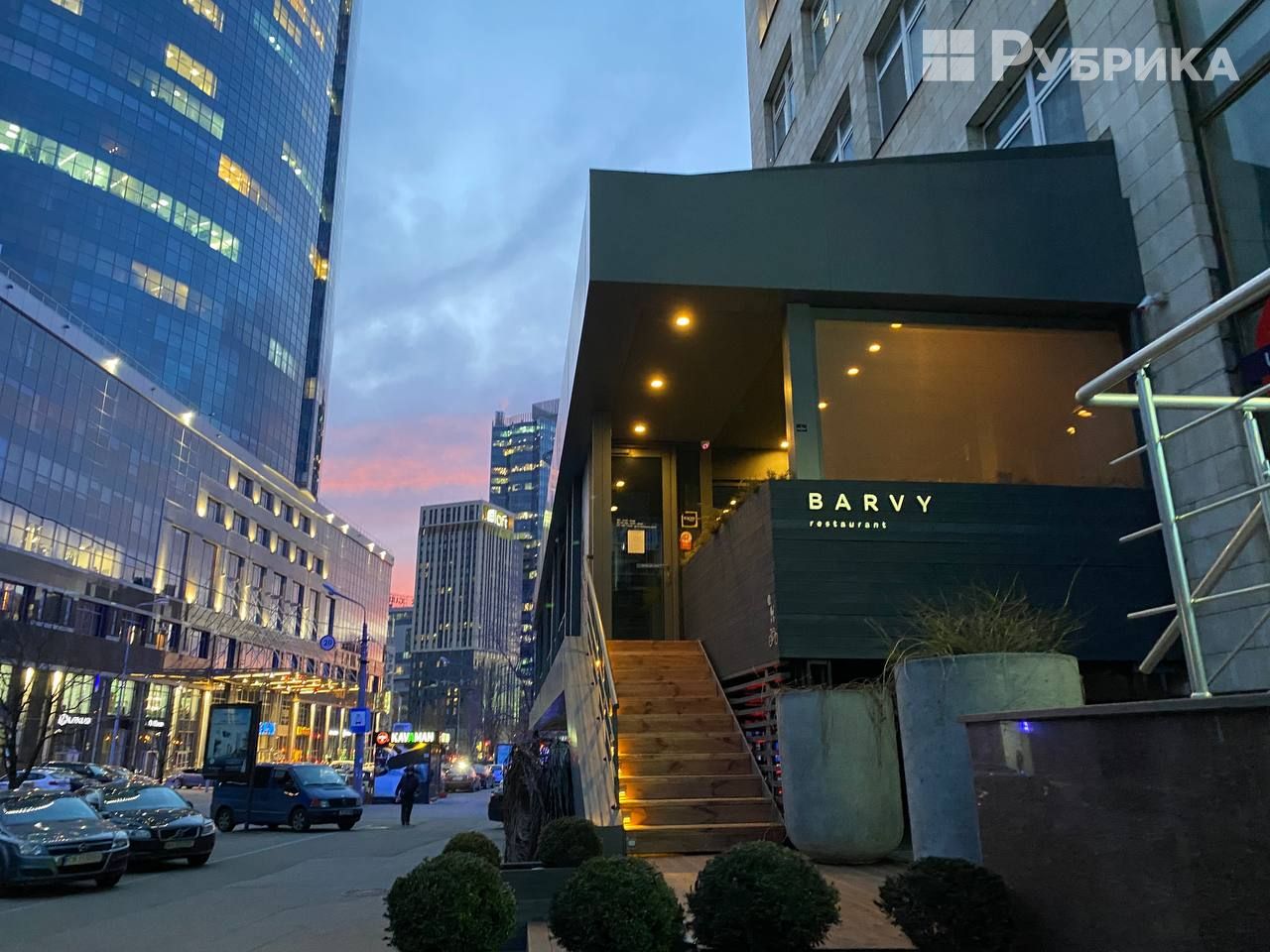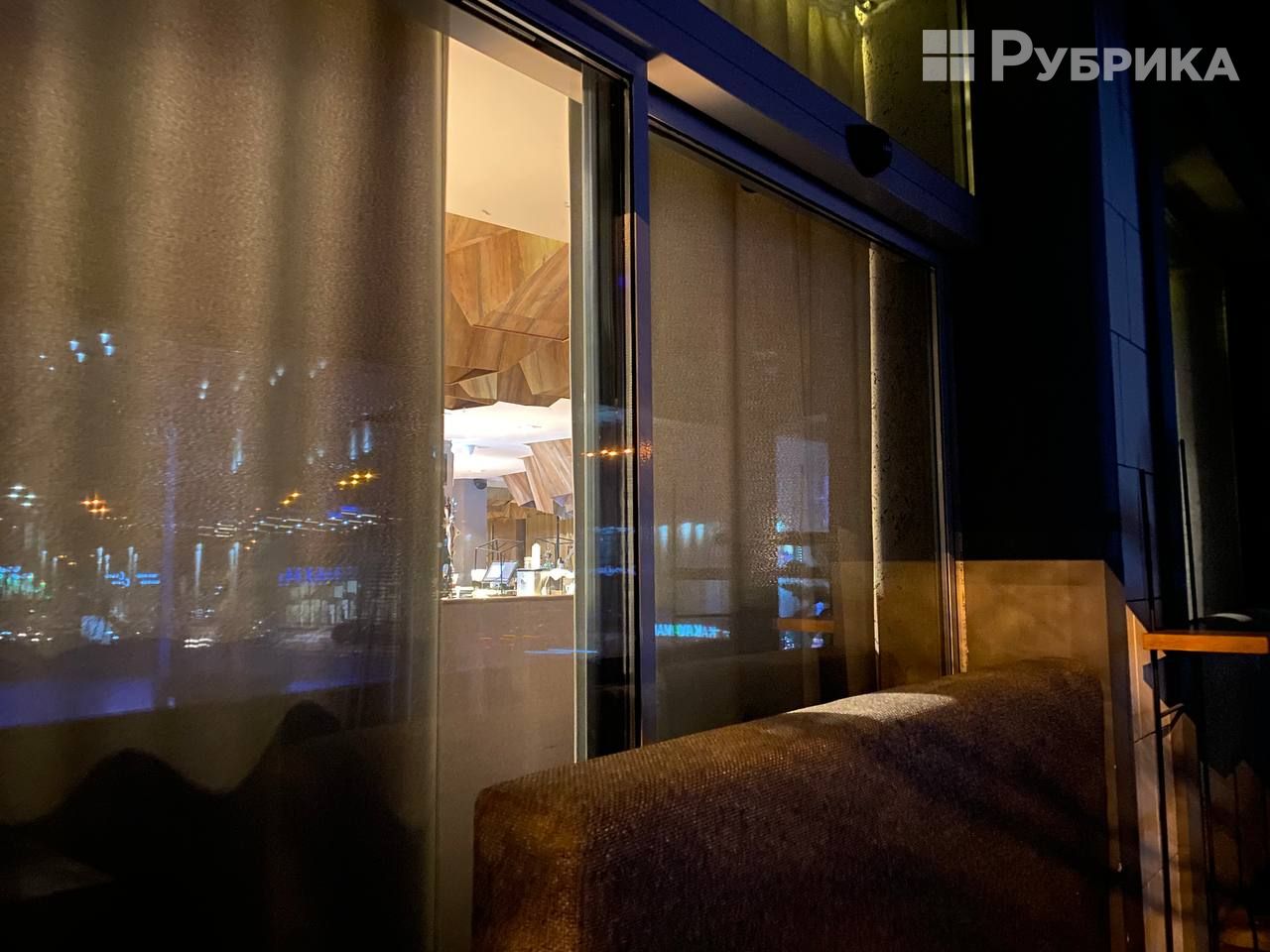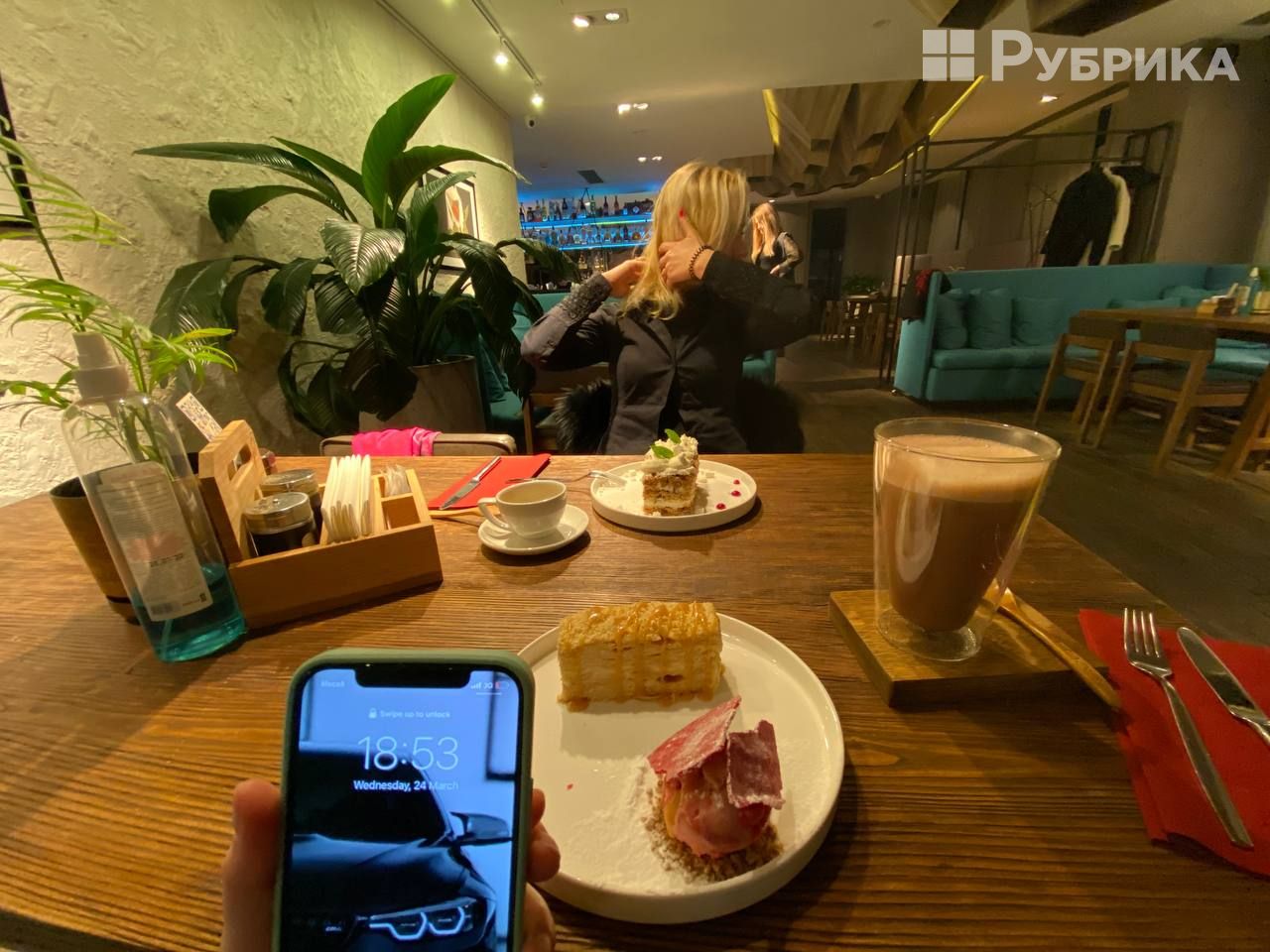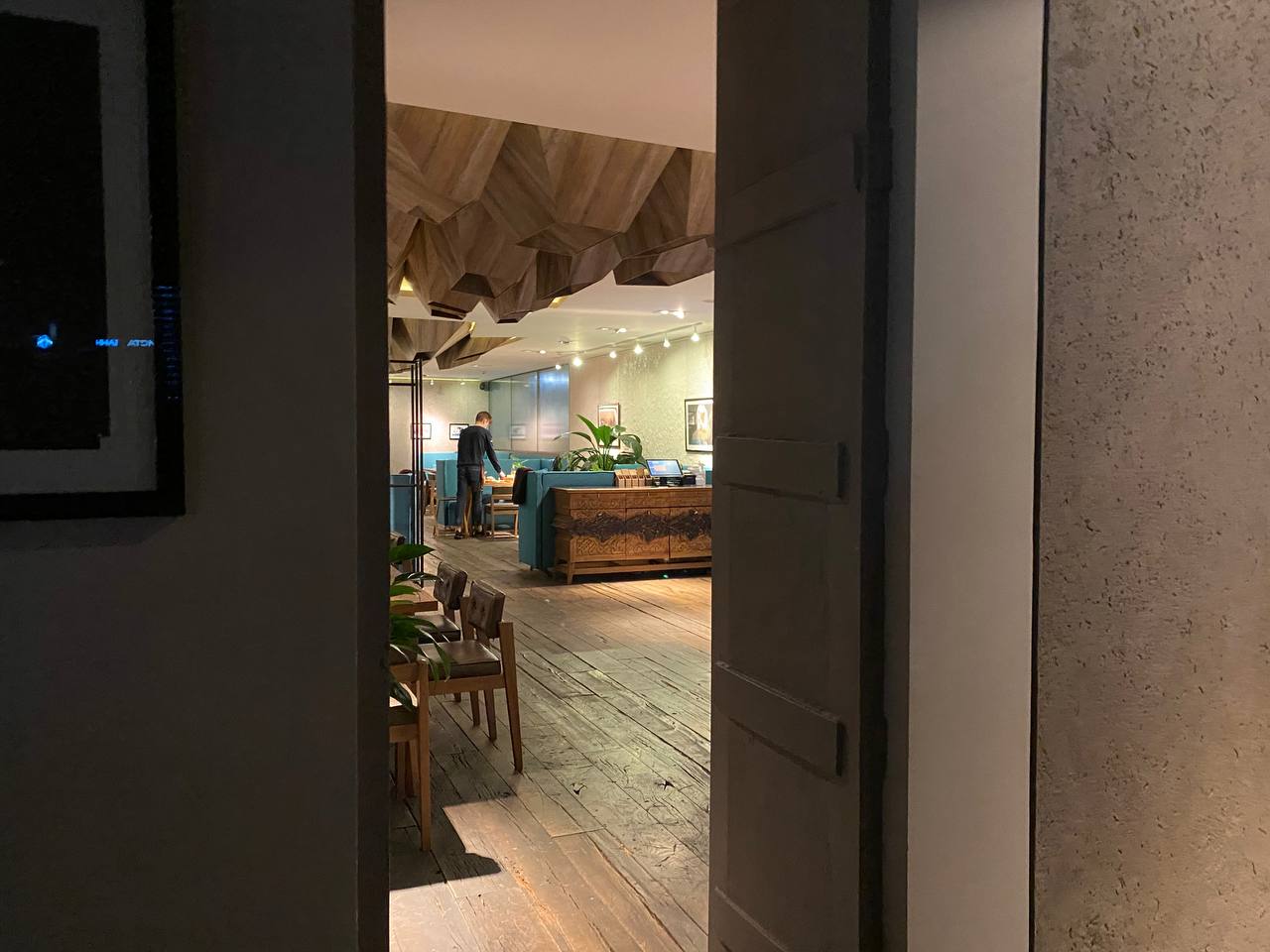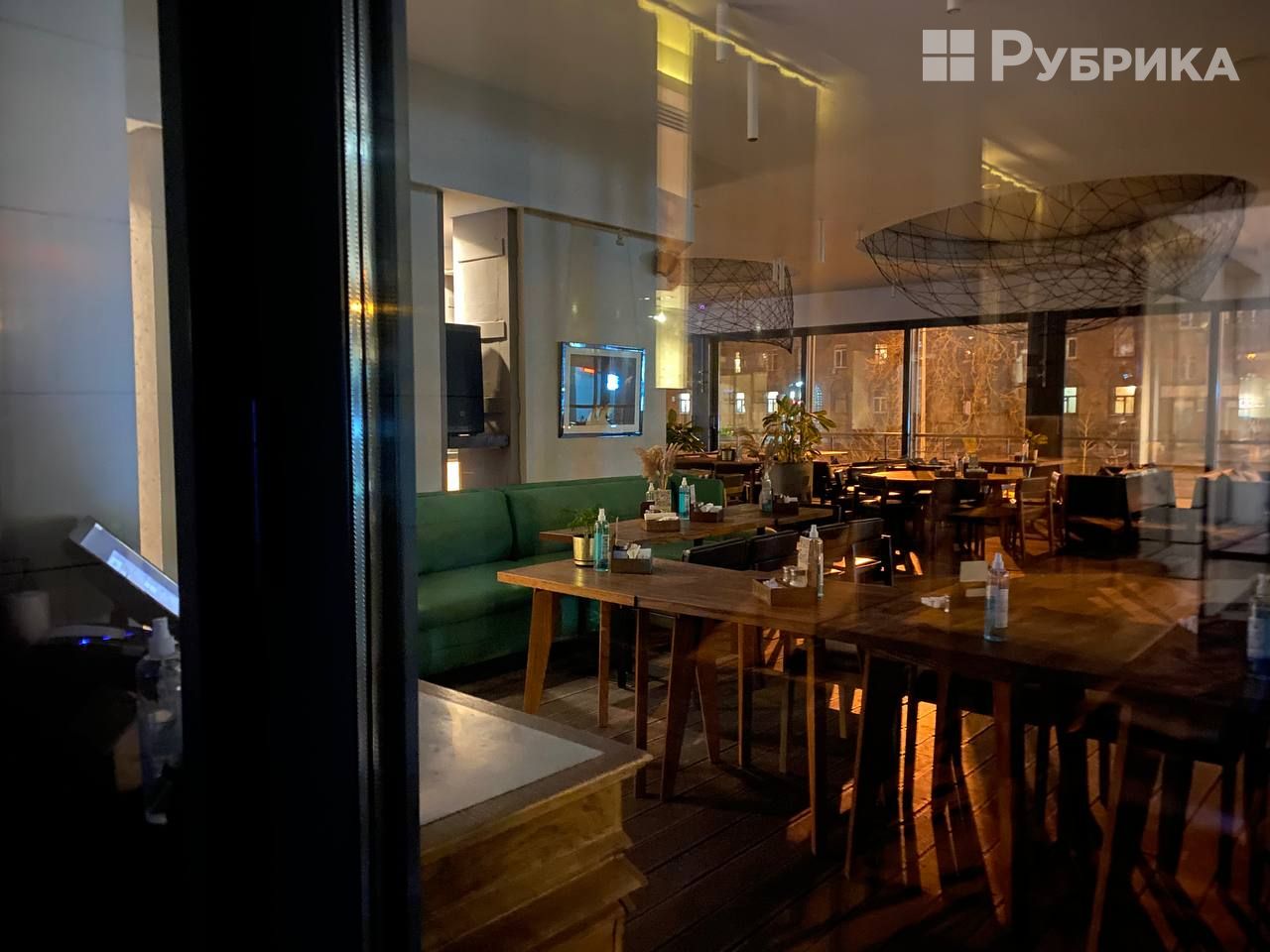Secret doors, closed curtains, conspiracy at entrance: how elite restaurants in Kyiv get round lockdown
Almost a year ago, the central topic for all Ukrainian media was the story of the Velur restaurant. The venue which belongs to the People's Deputy of the "Servant of the People" party Mykola Tyshchenko got hooked for quietly letting through VIP guests, violating the lockdown rules. It's only fair to say that dozens of other expensive institutions in our capital were doing the same thing, which for some reason weren't reached by the inspection.
A year later, a new lockdown was introduced in Kyiv: all venues should close again, but will elite establishments follow the rules? Rubryka journalists conducted their own investigation and found out how things were.
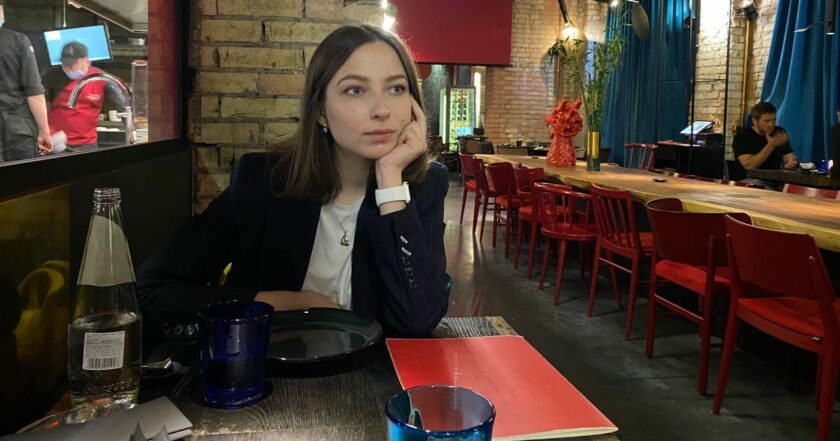
"Come in quick before someone sees you"
First, Rubryka journalists went to the BAO Chinese restaurant, located in the very center of Kyiv.
From the outside, it seemed that the venue wasn't working. The windows were curtained, the lobby lights were off. We could see it through the glass doors as we approached. After knocking on the door, a hostess appeared behind the glass, opened the locked door, and hurriedly said: "Come in quick, before someone sees you."
We found ourselves in a semi-dark room; inside, there was only subdued artificial lighting. We were surrounded by restaurant workers, a bartender was standing at the counter and other customers were sitting at the tables. The venue works behind closed doors. We're led through the largest hall, where several tables are occupied. On the way, I look into another one: several visitors are amiably chatting. In the last remote hall on the second floor, only one table out of five is occupied.
We've returned to the large hall where the atmosphere was more lively and settled ourselves near the show kitchen. Sous-chefs in masks are conversing about something with animation, laughing and scurrying around the kitchen: an ordinary work bustle, not reminiscent of quarantine.
The server in a mask brings the paper menus. I notice sanitizers are nowhere to be found, neither in the ladies' room nor on the tables. In general, everything is as usual. The food is served quickly, the kitchen is working hard; the servers are running around among the customers, and although there are few of them, the place doesn't look dusty and bored at all.
We entered the restaurant when the sun had already begun to dip below the horizon, and as it got darker on the street, lighting in the hall became more and more subdued: bright lamps could "give away" a working venue. I think this, and also the fact that one has to knock on the restaurant's door before entering, is the only thing that can upset a picky quarantine violator.
After paying the bill, we're going to the door. Several visitors come out in front of us. The security opens the door again with the key, looks around, and lets us out. Visiting the restaurant looks like a spy adventure.
Barvy has a secret door, but BAO and Hangover aren't afraid at all
The second place in line is the Barvy restaurant on the same street. To begin with, we decided to call the restaurant to find out if the venue was open. The hostess answered the phone and replied with slight hesitation: "Yes, we're working, but only one hall. You can come to our main entrance and I'll explain to you how to enter through the back door. I'm waiting."
When we arrived, we ran into a closed door; officially, the venue works only for takeout. There's a bench near the reception, blocking the way into the empty and dark hall. The hostess asked for my name and told me to walk around the building.
We go up the stairs; on this side, the windows, as in the previous restaurant, are closed with curtains. You can guess that the restaurant is working only by thin stripes of light.
We open the "secret" door and find ourselves in a well-lit hall. It's almost empty; one visitor is working at a table with a laptop, a couple of men are sitting at a bar. We order dessert; all menu items are available, which means that at other times, they don't lack customers.
The servers are wearing masks, but in Barvy, unlike the previous restaurant, there are antiseptics on the tables, as in the toilet, and you can view the menu only by scanning the QR code.
While we're having a pleasant chat over coffee, new customers don't appear. They bring us the bill, and I strike up a conversation with the girl:
- You're empty in quarantine, right?
- It's the time. We have more visitors at lunchtime; we prepare lunches.
- And how many people come here?
- Those who've come here every day before quarantine are our regular customers. The waitress shrugs and smiles.
As we found out soon, Barvy set shoulder to the wheel about conspiracy when compared to competitors from Bao and Hangover restaurants. First, we called a popular restaurant on Khreshchatyk, where they didn't think for a second, responding they were ready to receive us:
"You can come. How many people and for how long? Come in through the central door. It'll be closed, but you knock and they'll open for you," Bao replied to us.
At Hangover, we even mentioned we wanted to book a table for as many as seven people; this number of persons sitting at one table to no extent made the host doubt. "Yes, it's possible. I just want to warn you we work until 10 p.m. in restaurant mode. How to get inside? Come and we'll figure it out," the man answered us.
In fairness, not all luxury establishments in Kyiv violate quarantine. For example, Rubryka journalists tried to get inside the Holy Burger, Not Only Fish, Ishak, and Sazha restaurants; we were denied everywhere.
"Elite wants to have fun, and we adjust"
We don't want to sound snobbish, but we can also understand the logic of the owners of expensive venues. We saw no crowds in none of the establishments, so social norms were observed. Besides, the staff in such restaurants are usually above the middle class; that is, they'll certainly be in demand in the labor market if the owner suddenly decides to act strictly according to the law and dismiss everyone for an indefinite period.
And here each owner has a tough choice: to act according to the law, risking drowning the business, or to go for tricks, in hope of slipping through?
The record shows everyone answers this question differently. However, as one Kyiv restaurateur explained to Rubryka, asking to stay anonymous, the elite facade of such establishments is often deceiving:
"The irony of it is that with the money I'll spend on launching one elite restaurant, I can launch a small street food chain or any other food from the 'simpler' segment. At first glance, it seems that it's apples and oranges: but in such establishments, one can have an excellent turnover and fairly cheap staff, easy to change if something happens. In BAO, the situation is slightly different: an expensive chef, elite servers, and hostesses who don't agree to starve or go into related professions. Besides, the elite wants to have fun, and we only adjust to their needs, otherwise, the client will go to others," he said in an interview with the publication.
In terms of damage from a lockdown last spring, the restaurant business ranked second, right after cinemas. Then there was the weekend quarantine, which was met with an outcry among the owners of the venues. Their business receives the main proceeds on weekends. And now a new lockdown has arrived. There's a hope that this year the restrictions will be lifted faster, otherwise only chain restaurants will soon remain in Kyiv which we wouldn't like. After all, the restaurant business is one of the few areas that Ukraine can still be proud of.
Photo: Rubryka


